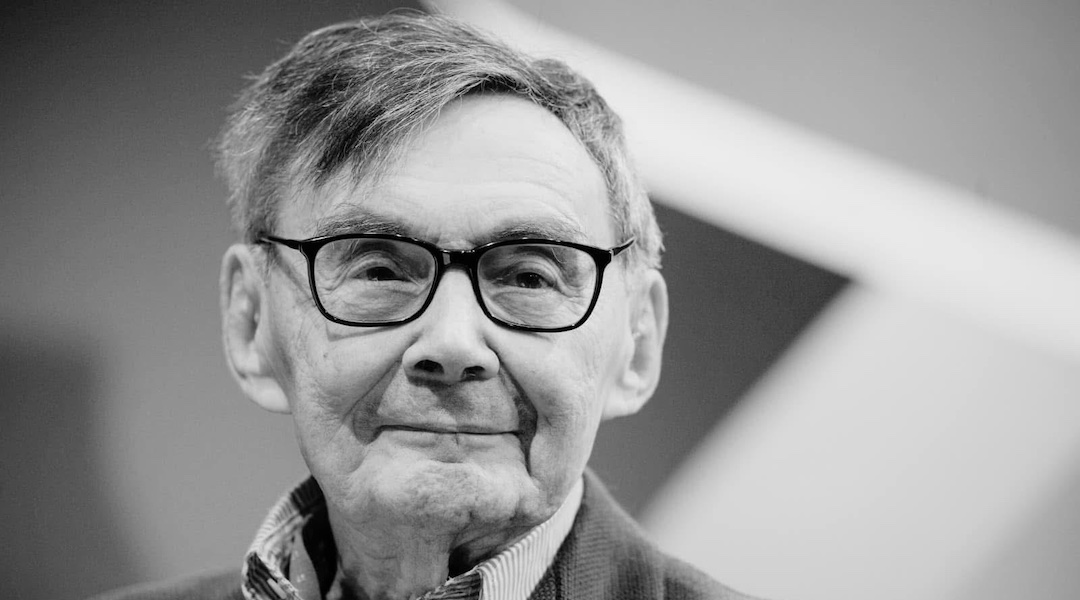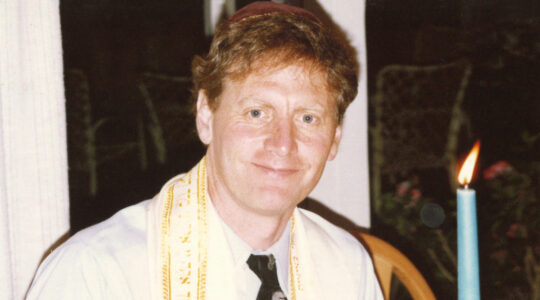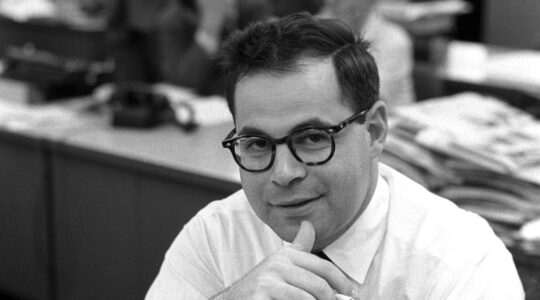Marian Turski, a Polish-born survivor of Auschwitz who helped found the POLIN Museum of the History of Polish Jews in Warsaw, has died. He was 98.
His death was announced Tuesday by the Polish magazine Polityk, where he worked as a columnist.
A journalist and historian who documented the past and present of Poland and its Jews, he served from 2000–2011 as chair of the Association of the Jewish Historical Institute in Poland, an initiator of the museum that opened to acclaim in 2013. He also served as chairman of the museum’s Council.
“Mr. Turski shaped the museum’s mission and ethos,” the American Friends of POLIN said in a statement. “A leading voice among the Museum’s founders, he understood that it must be a museum that stands in solidarity with the oppressed and marginalized, a key lesson he drew from Polish Jewish history and his experiences during the Holocaust.”
In January 2020, he drew international attention at the commemorations of the 75th anniversary of the liberation of Auschwitz, delivering a speech in which he warned that the Nazi death camp and the Holocaust did not “fall from the sky.”
“Do not be indifferent towards discrimination against minorities, harm and violation of human rights, violation against social contracts,” he said, suggesting “do not be indifferent” be regarded as the “Eleventh Commandment.”
“It was his mantra, including with respect to right-wing political forces in Poland which he did not hesitate to criticize publicly,” Menachem Rosensaft, founding chairman of the International Network of Children of Jewish Holocaust Survivors, recalled in a statement. “With his passing, the murdered victims of the Holocaust have lost one of their fiercest messengers and advocates.”
In January, Turski gave a speech at the commemoration of the 80th anniversary of the liberation of Auschwitz, where he warned against rising antisemitism. “We see in the modern world today a great increase in antisemitism, and it was antisemitism that led to the Holocaust,” he said.
Moshe Turbowicz (he later changed his name at the suggestion of communist colleagues who felt it was too Jewish) was born in 1926 in Druskienniki, Poland, a city now part of Lithuania. As a teenager he and his family were confined to the Lodz ghetto from 1940 to 1944, when he was deported to Auschwitz. He survived death marches from Auschwitz to Buchenwald and later to Theresienstadt, where he was liberated.
After the war, Turski settled in Warsaw and, as a staunch communist, dedicated himself to a new, “revolutionary” Poland. He studied history at the University of Wrocław and took up journalism, working for various leftist publications. He later ran afoul of the pro-Soviet forces who came to dominate postwar Poland, and during the antisemitic campaign in Poland in March 1968, he severed ties with the communists for good.
“Marian himself regretted some of the choices he had made, most likely his youthful blind faith in communism, even though he remained a leftist until the end of his days,” Zygmunt Stępiński, the director of the POLIN Museum, recalled in a statement. “He did not erase the facts from his biography that became inconvenient over time — instead, like any respectable historian, he wanted to highlight the whole picture, not just fragments.”
Among his books were a history of the Polish peace movement, co-written with Henryk Zdanowski, and “They Were Children Then,” a collection of survivor accounts.
In 1964 and 1965, he visited the United States on a State Department scholarship. In 1965, he took part in the civil rights march from Selma to Montgomery organized by Dr. Martin Luther King.
Turski insisted that “fighting against current and future oppression was central to responding to past persecutions,” said Stępiński.
He is survived by a daughter, Joanna.
JTA has documented Jewish history in real-time for over a century. Keep our journalism strong by joining us in supporting independent, award-winning reporting.






